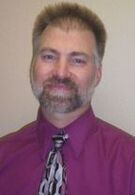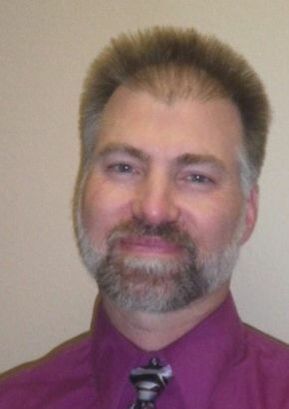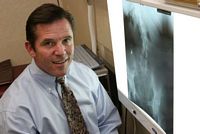Occupational Medicine: What is it? and why should dcs do it? january 1, 2023 james raker, dc12/27/2022  Occupational Medicine is the branch of medicine that deals with worker wellness and safety. Under federal law, departments such as OSHA, DOT, FAA, NIOSH, Homeland Security, etc., must enforce mandates that specified categories of workers must undergo earmarked tests done every year, and that the companies they work for must pay cash for the tests! What kind of tests are we talking about? Things like physicals, hearing tests, pulmonary function tests, heavy metal tests, respiratory mask fit tests, drug and alcohol tests, and more. There are cUlTently around 25 different services of which 13 are mandatory and the others are highly utilized in most businesses. For example, all truck drivers, plane pilots, train engineers, bus/ subway drivers, and ship captains must have a physical every 2 years or less. They all must have drug and alcohol tests routinely to protect the public's safety. All firemen, policemen, hazardous cleanup crews, and garbage truck drivers in every city must have physicals and drug tests. All school bus drivers, utility truck drivers, and FedEx/UPS drivers also must be tested. Teachers, preschool workers, nursing home workers, must have background checks and be fingerprinted mandatorily. Workers whose jobs take them around paint or dust must have respirator mask fit tests. People in loud jobs must have their hearing tested annually. In all, 80-90% of workers in the US have at least one of these tests done every year. CUlTent spending for these tests is $33 billion a year and that total is continuing to rise. Why should DCs incorporate Occupational Medicine into their clinics? It can be done by DCs in all 50 states with only a few exceptions. Namely DCs in WA, MI, and NY can't do the DOT physicals. An especially interesting feature is that there are only 25 or so services and most cost very little or nothing to start. Out of the 25 services, only 5 require extra training to become certified, but two only take 4 hours, one requires 12 hours, and two are 20 hours (2.5-day course), which means that all training could be done in a couple of weeks. With that training, a DC could then offer services that nearly every single business uses, which mean the majority of working people in your town could be directed to go to your office when most of them have never been to a DC. It is an opportunity to gain access to many new patients that need chiropractic care, but have been apprehensive, or told not to go to a chiropractor. This approach allows you to get paid to see new patients rather than you paying to advertise for new patients. I conduct drug tests for my bank and grocery store. I do physicals and drug tests for the city and county police and firemen. I do physicals for the garbage trucks, electric and cable trucks, railroads, and airports. I have paper mills, construction sites, military contractors, school districts, and just about every other business in town. So, when a DC asks me, "How do I know there is some of this business in my town?" I can say factually, "It's in every single town in America."The need. is growing, not shrinking. The time is now to capitalize on the opportunity. Oh, and best for last, your assistant can do everything but the physical without you having to be present. Talk about a great way to make cash income with no recoupments, no downgrades, no coding issues, no fear of an insurance calTier coming to take all their money back. ALL DCs SHOULD KNOW HOW TO DO THIS AND WORK WITHIN CORPORATE AMERICA. Live life easier, without fear, and with more cash. Dr. James Raker DC, FADP, CME, CWP is CEO of OccMed For DCs, has 30 years private practice including Occupational health of several companies in Texarkana USA area. Has been doing DOT work for over 25 years, was one of the first doctors in the country to pass the DOT ce rtification and become a Ce led Medical Examiner for the Dept of Transportation of the US government, and has been teaching Occupational Medicine services since 2012. Has lectured in AR, TX, IL, SC, CA, FL, NJ, and OH. Providing OccMed services for companies, he has provided 500 drug tests in a single day, and 75 hearing tests in a single day. He became a Certified Wellness Instructor by the Foundat ion for Wellness Professionals on July of 2014. He sta rted the OccMed For DCs training program in 2015 at www. OccMedForDCs.com
0 Comments
Colorado allows chiropractors to give COVID-19 vaccine shotsChiropractic Economics January 21, 2021
1 minute read Colorado Gov. Jared Polis, looking to speed-up the distribution of COVID-19 vaccinations in the state, has signed an executive order allowing health care professionals such as dentists, chiropractors and veterinarians to give vaccines to people “in hospital-like settings” where the state has already approved COVID-19 distribution, according to the local NBC 9News. The emergency rules were part of an executive order applying to inpatient, outpatient, and hospital settings under certain delegations. An amendment of the executive order reads, “I direct the Executive Director of DORA, through the Director of the Division of Professions and Occupations (DPO), to promulgate and issue temporary emergency rules to permit the licensed professionals listed below to cross train, supervise, and delegate responsibilities concerning the temporary care and treatment of patients to the professionals listed in Section II.B., below, in hospitals, inpatient medical facilities, including emergency departments, and outpatient settings, including but not limited to providing the COVID-19 vaccine, as long as such delegated responsibilities are appropriate based on each delegated professional’s education, training, and experience.” A list of approved professions under the executive order includes certified nurses aide, practical nurses, podiatrists, optometrists, chiropractors, dentists, physical therapists, occupational therapists, veterinarians, respiratory therapists, speech-language pathologists, and surgical assistants. Polis last week said he was “shocked we were lied to” about a reserve stockpile of the COVID-19 vaccine from the Trump administration, but said “the state is still on track to vaccinate 70% of Coloradans over age 70 by the end of February” according to 9News. The executive order allowing additional health care workers to administer COVID-19 vaccines will expire 30 days from Jan. 7, 2021, unless the order is extended. “My administration, along with other State, local, and federal authorities, has taken a wide array of actions to mitigate the effects of the pandemic, prevent further spread, and protect against overwhelming our health care resources,” Polis wrote. “This Executive Order … [will] ensure that inpatient healthcare facilities have sufficient resources and personnel to treat patients suffering from COVID-19 and to ensure that inpatient facilities and outpatient settings have sufficient resources to administer COVID-19 vaccinations.” To read the executive order go to https://drive.google.com/file/d/17I0tXNEPlzEeX6jk-PH1h86JGFxAXIio/view. CONNECT TO CHIROPRACTIC ECONOMICS DOWNLOAD FULL ARTICLE HERE HTTPS://CDN.CHIROECO.COM/WP-CONTENT/UPLOADS/2020/11/CHEC_18_2020_FULL-2.PDF November, 2020 https://www.chiroeco.com/
James Raker, DC TIMES ARE CHANGING, and in the profession of chiropractic we often hear the rumbling (or is it a battle cry?) of “We need to change with the times in order to survive!” or “We need additional scope of practice changes to include more things in order to survive.” Without a long, drawn-out political fight to create a change in our scope of practice, there are some 15 services that DCs in every state can do right now under their current scope of practice that can earn them money and recognition from local business and government entities at the city, county, state and federal levels. It’s easy to do, takes little investment in equipment and little time to perform, yet can generate more income than the primary way of practicing for most DCs. Chiropractic remains the focus! Does this mean that practicing occupational medicine means you don’t practice good old-fashioned chiropractic? Of course not. It means that companies will send you workers for the purpose of keeping them safe and healthy by complying with federally-mandated testing such as: • physicals; • drug and alcohol testing; • hearing and lung testing; • respirator mask fit testing; • heavy metal testing; • vision testing; • and more. Think of it like this: People who would never in their lives think of coming to a DC for any reason (a big chunk of the American population) are made to come to your office by a company or government entity like the county/state for a spinal screening (really a physical exam). These physical exams are usually very simple, requiring only five minutes of your time (making you $65), but every single physical requires some evaluation of neck and back range of motion and general fitness (spinal screening). During this exam you can inquire about their stiffness, pains, headache, tingling, etc., and simply ask them if they have ever tried chiropractic for help. Many have not and are tired of the continuing pain or constant pills their MD has prescribed — and many then ask me if I can see them as a new patient. $30 BILLION THE AMOUNT SPENT ON OCCUPATIONAL MEDICINE SERVICES ANNUALLY New patients, new partnerships! Not only do the workers ask me to see them as patients, but the companies I work with usually end up asking me to be their company doctor so that every single workers comp injury comes to me. Talk about being in the driver’s seat! I now am the one who gets to tell patients when and where to go for care if I can’t give it to them. The companies love having a DC as the company doctor if you understand their needs as directed by OSHA, DOT, NIOSH and other governmental agencies that the company has to report to. There are many services your office can provide on the business site, such as drug testing, alcohol testing, pulmonary function testing, hearing testing, etc., that can be done by a trained chiropractic assistant without your presence. That means you can supervise from your vacation or home and still get paid via the work your assistants do while you are gone. This cannot be done with adjustments or therapy, which require your physical presence at the office. What if you become disabled? You can still make a six-figure income with one eye, one ear and one arm that works doing occupational medicine. You can work for yourself in your own clinic, work for a company on their site, or work for a hospital running an occupational medicine department. Services all businesses need Knowing how to provide the services that 90% of all businesses need or are mandated to do is much easier than paying advertising money for people to come to your office, then having to convince them to spend their money with you. I like it when a business or government entity forces their employees to come to me and pays 100% of the bill every single time I send it to them with no insurance billing involved. The lesson here is to learn all the services you can provide as a doctor of chiropractic and make income with them before you go out of business waiting for the next generation of full scope of practice rights to occur. Work smarter, not harder, to get a piece of the $30 billion spent on occupational medicine every year. JAMES RAKER, DC, is the owner of Ark-La-Tex Health Center, which serves not only regular chiropractic patients five days a week but is also the company clinic for several companies ranging from 10-1,000 employees. He can be contacted at OccMedForDCs.com for more information about the occupational services DCs can provide to local companies. Chiropractor eligibility for coronavirus relief funds expanded by U.S. government in October
Chiropractic Economics October 23, 2020 1 minute read All payment recipients will be required to attest to receiving the Phase 3 General Distribution coronavirus relief funds payment…The U.S. Department of Health and Human Services (HHS) announced it will be making up to $20 billion in new Phase 3 General Distribution coronavirus relief funds available for providers on the frontlines of the coronavirus pandemic, including chiropractors. The relief is targeted for providers that have not yet received Provider Relief Fund distributions. “The Administration is committed to providing relief resources in an equitable manner to assist the diverse health care provider community regardless of whether they accept Medicare or Medicaid payments,” the HHS.gov website stated in a press release. “HHS is also announcing it will be updating its most recent PRF reporting instructions to broaden use of provider relief funds.” Under the Phase 3 General Distribution, which began accepting applicants on October 5, 2020, HHS invited providers that had already received PRF payments to apply for additional funding that considers changes in patient care operating revenue and expenses caused by the coronavirus. “We have worked closely with stakeholders across the health care system to ensure that the Provider Relief Fund reaches all American health care providers that have been impacted by the pandemic,” said HHS Secretary Alex Azar. “Today, we are expanding the pool of eligible providers to include a broader array of practices, such as residential treatment facilities, chiropractors, and vision care providers that may not have already received payments.” Providers and all Phase 3 applicants will have until 11:59 p.m. EST on Nov. 6, 2020, to submit their applications for payment consideration. Once validated, these providers will receive a baseline payment of approximately 2% of annual revenue from patient care plus an add-on payment that considers changes in operating revenues and expenses from patient care, including expenses incurred related to coronavirus. All payment recipients will be required to attest to receiving the Phase 3 General Distribution coronavirus relief funds payment and accept the associated Terms and Conditions. For more information on coronavirus relief funds go to hhs.gov/about/news/2020/10/22/hhs-expands-relief-fund-eligibility-and-updates-reporting-requirements.html. Jan 6, 2020 DOT Program Change
This affects your CDL drivers and motor carrier clients! Inform Your Clients of this Change Drivers with a CDL License: Starting on January 6, 2020, drivers who have a commercial driver's license who switch employers will be required to register with the FMCSA Commercial Driver’s License Drug and Alcohol Clearinghouse as part of their employment-related background check. Voluntary registration will begin in October 2019. (Click Here) to go to the registration site. Motor CarriersEmployers must register and purchase a Query plan from the FMCSA Clearinghouse by January 6, 2020. Employers can register starting in October and review details on purchasing a query by following this link (Click Here) but query programs will not be available for purchase until November 2019. Queries must be sent to the Clearinghouse for current and prospective employees' drug and alcohol violations before permitting those employees to operate a commercial motor vehicle (CMV) on public roads. In addition, Employers must obtain an annual query for each driver they employ. Drug and Alcohol Collection Sites: Beginning January 6, 2020, when performing a DOT drug test, the driver's CDL number must be placed in either the space normally used for a social security number or employee identification number. This does not apply to drivers of commercial vehicles who do not have a commercial driver's license. Although the FMCSA notice uses the word "required" repeatedly, FMCSA has stated that, "this guidance is not legally binding in it's own right". Nonconformity with this guidance will not affect rights and obligations under existing statutes and regulations. If the collector has not followed this guidance, the MRO is required to contact the driver, the employer, or designated representative to obtain it. If the collector does not fill in this information on the CCF for whatever reason, they still must send the specimen to the laboratory for testing. FMCSA: Interstate 18 Year Old Military Drivers
Soon you may see 18-20 year old military interstate drivers in your office to obtain a medical examiner's certificate. The FAST Act military "pilot" program will allow selected military personnel 18, 19, and 20 years of age to operate a commercial motor vehicle in interstate commerce. The driver must have military "heavy vehicle training and experience". .FMCSA is looking for a small test number of military veterans of that age group to apply for the pilot program. There is another discussion for a pilot program that will allow other 18-20 year old's to drive a commercial vehicle across state lines. We do not know what type of documents they will present when getting their medical certificate, but we will keep you informed on this effort that may in the future increase the number of interstate drivers of commercial vehicles. In the meantime, all drivers must be at least 21 years old to driver in interstate commerce. jim raker, DC
All companies need help with occupational medicine testing and examsEVERY SINGLE TOWN IN AMERICA HAS MEDICAL SERVICES, MANDATED BY FEDERAL LAWS, WHICH DCS CAN PROVIDE.You may have heard about performing U.S. Department of Transportation (DOT) physicals, which DCs can do by law in every state except Washington, Virginia and New York; these physicals are mandatory for not only truckers, but railroad workers, pipeline workers, bus and subway drivers, ship captains (for whom DCs cannot provide this yet), and airline pilots (for whom DCs can provide in 28 states for private pilots as of 2018). Besides the physicals for these segments of the DOT industry, DCs in all 50 states can do drug testing, alcohol testing, hearing testing, Pulmonary Function Testing, Respirator Fit Testing, hand dexterity testing and more. All these tests are for safety and wellness issues. You are not diagnosing or treating an ill patient, you are trying to prevent them from becoming ill. Safety and wellness should go hand-in-hand with the chiropractic profession. No insurance billingCompanies and municipalities such as school districts, cities, counties, states and federal government are all required to follow these mandated rules. The nice part for chiropractors and testing doctors is that there is no insurance billing. Every service is paid in cash by the company, municipality or individual. Some of these services require additional training and certification, and some don’t. Some services can be done with no extra cost in equipment, for example physicals and drug testing at a lab. Neither require an investment in equipment. Others may require buying a piece of equipment like an audiometer or alcohol breathalyzer, but they are only $750 and $2,000 respectively. Each can bring in far more income than its cost. Do the mathWhen a company needs their 100 employees’ hearing tested at $25 each, drug tested for $40 and alcohol tested for $25 yearly, the potential income is $9,000 in a single day (100 x $25, $40, $25). Do this for several companies every year and you now are talking about extra income of $40K-90K a year. I have contracts with school districts for their bus drivers, with cities and counties for their police and firemen, and state and federal contracts for drug testing their workers. I also do work for banks, grocery stores, cement plants, gravel and timber truckers, telephone and electric companies, and more. There is no town in America that doesn’t have this work. Patient communication is important and pays dividends. Many people ask me to be their doctor after doing a quick four-minute exam just because I’ve told them more in four minutes than their MD has told them in four years. It’s like getting paid to do spinal screenings, and the company is forcing all their employees to come to you. Someone has to do it — why not you? Large companies looking for helpHere is another example. I have a company that had 15 workers who each needed a physical at $65 each, chest X-ray at $50, drug test at $40, alcohol test at $25, hearing test at $40, pulmonary function test at $40, respirator fit test at $40, and blood drawn for heavy-metal evaluation at $300. While I adjusted 40 regular patients that day, my assistants did everything except the part of the physical I had to do, which took me about four minutes on each person. At the end of the day we were paid $9,000 by the company. No insurance problems, no billing, no reductions, no waiting months or years, just a check and we were done. DCs who know this business can get jobs within a company such as Coca-Cola, taking care of all employee needs. I know several hospitals that run occupational health divisions within their systems. Occupational medicine is the future of chiropractic, to integrate into the health care system where there is a need and little discrimination over licensing. The medical establishment does not have a hold on this aspect of health care. In fact, most of the competition is non-medical workers doing all the testing, except for physical exams. You don’t have to compete with MDs; you are competing against regular people who are certified to do drug tests, or hearing testing, etc. Success examplesChiropractors have learned or become certified in this work and have gone on to land large contracts. “I learned how to do occupational medicine for companies and opened my doors in 2014,” said Wayne Hebert, DC, of Corpus Christi, Texas. “We immediately were covered-up in work and averaged $750,000 a year in occupational medicine work alone. I sold the business to my medical assistant after five years to move closer to family, and my assistant landed a $250,000 contract from a meat-packing plant last month. Yay to occupational medicine for making life easier for DCs.” Steve Knoernschild, DC, of Illinois shared a similar story. “For those chiropractors that are wanting to add another form of income to their office, I highly recommend learning occupational medicine,” Knoernschild said. “My office income has dramatically increased since I started a few years ago. I now have served more than 2,000 DOT drivers, countless companies, seven school districts, and the list goes on. Best of all, most of this is payment at time of service, and you are paid your full gross charges.” Occupational medicine is where chiropractors can shine by putting their stamp on all the services with a guarantee they are done right, along with an ability to perform exams that non-medical workers cannot do. This can make chiropractors a one-stop shop for companies, which is what they need and want. JAMES RAKER, DC, is the owner of Ark-La-Tex Health Center, which serves not only regular chiropractic patients but is the company clinic for several organizations that each have 10-1,000 employees. He can be contacted at OccMedForDCs.com. By Gabriella Borter
April 17, 2019 (Reuters) - Dozens of medical professionals in Appalachia, a region hard-hit by the U.S. opioid crisis, have been charged with writing hundreds of thousands of illegal prescriptions and committing healthcare fraud, federal prosecutors said on Wednesday. Sixty people, including 31 doctors, were accused of illegally prescribing opioid drugs in exchange for cash and sexual favors in the rural, mountainous region stretching from Pennsylvania and West Virginia to Alabama and Louisiana. “The opioid epidemic is the deadliest drug crisis in American history, and Appalachia has suffered the consequences more than perhaps any other region,” Attorney General William P. Barr said in a statement. Some 130 Americans die every day from an opioid overdose, according to the Centers for Disease Control and Prevention. The charges were the result of an investigation by the Appalachian Regional Prescription Opioid Strike Force, a joint law enforcement agency created in December to crack down on prescription fraud schemes that have contributed to the deadly drug epidemic. The charges were filed against individuals in seven states: West Virginia, Tennessee, Ohio, Alabama, Kentucky, Louisiana, and Pennsylvania. One doctor in Tennessee who called himself the "Rock Doc" was accused of bargaining for sexual favors by prescribing opioids and benzodiazepines, federal authorities said in the statement. Another doctor in Alabama allegedly recruited prostitutes to become patients at his clinic and allowed them to abuse drugs in his home. Several doctors were accused of writing pre-signed, blank prescriptions for controlled substances without medically examining the patients that received them. A few were accused of running "pill mills," including one in Ohio that allegedly distributed over 1.75 million pills between October 2015 and October 2017. The period in which many doctors were accused of illegally and excessively dispensing drugs coincided with a spike in overdoses in the United States. Opioid overdoses increased 30 percent between July 2016 and September 2017 in 45 states, according to the CDC. Reuters Health Information © 2019 Cite this: Dozens of Doctors in 7 States Charged in Opioid Fraud Bust - Medscape - Apr 17, 2019. August 3, 2017—On April 24th, a new Federal Aviation Administration (FAA) medical exam became available to licensed private pilots. The new program allows private pilots to obtain a BasicMed medical exam in lieu of a 3rd Class Medical Certificate provided by an Aviation Medical Examiner (AME). Providers are not required to become FAA “certified” to provide the BasicMed exam, however they must meet certain requirements.
The BasicMed exam can be performed by an AME or by a physician licensed by a state medical board. That language seemed to apply only to medical and osteopathic doctors. However, on July 14, TeamCME received FAA confirmation that DCs are Specialty Physicians when considered as “Chiropractic Physicians” by their state chiropractic licensing board. To be able to participate as a BasicMed provider, the state chiropractic scope of practice must also include the ability to perform the components of the BasicMed exam. TeamCME is suggesting that DCs not perform the BasicMed physical until their state licensing board has clarified the board’s position on physician status and scope of practice. State chiropractic licensing boards are being contacted by the Federation of Chiropractic Licensing Boards with information on how to proceed. As state licensing boards take action, TeamCME will be providing updates to the FAA and the Aircraft Owners and Pilots Association (AOPA). There are at least 31 state boards that allow DCs to use the phrase “chiropractic physician.” They are listed below. Performing physical exam similar to the BasicMed is included in the chiropractic scope of practice in 47 states. For comparative purposes, the BasicMed physical exam is slightly less comprehensive than the commercial driver physical. However, the protocol to determine the fly/no fly decision is significantly different. Even those who are certified in the National Registry to perform CDL physicals will need limited preliminary training to get this right. Those not authorized to perform CDL physicals will likely need significantly more training. There are tens of thousands of private pilots who are opting to obtain the BasicMed flight physical, and there are many reports of difficulty finding a provider willing to perform it. The FAA medical program is considered by many to be the gold standard. This significant opportunity has the potential to affect other federal physical exam programs that currently exclude DCs. Get involved in the expanding opportunities that exist for performing the FAA BasicMed and FMCSA Commercial Driver physical exam. For more BasicMed information go to: http://www.teamcme.com/faa-basicmed-flight-physical-training/J Join our BasicMed Email List: http://eepurl.com/cYiHGb Learn about CDL physicals: http://www.teamcme.com/national-registry-certificed-medical-examiner-training/certification-training/initial-training/ Already performing CDL physicals? Join our CME email list: http://eepurl.com/cQK06b States where “chiropractic physician” is acceptable: Alabama, Alaska, Arizona, Arkansas, Connecticut, Delaware, Florida, Idaho, Illinois, Iowa, Louisiana, Massachusetts, Mississippi, Missouri, Nebraska, Nevada, New Jersey, New Mexico, North Carolina, North Dakota, Ohio, Oklahoma, Oregon, Rhode Island, South Carolina, South Dakota, Tennessee, Utah, Vermont, Washington, West Virginia State chiropractic scope of practice that allows physical exams: All states except: New York, Washington, Michigan Source: TeamCME-National Network of Certified Medical Examiners "Virginia DCs Regain Ability to Conduct CDL Physical Exams"Monday, May 1, 2017
FOR IMMEDIATE RELEASE: April 17, 2017 Virginia DCs Regain Ability to Conduct CDL Physical Exams . Afton, VA – The Unified Virginia Chiropractic Association (Unified VCA) is pleased to report that the organization’s HB 1688 was passed and signed into law by Governor MacAuliffe on February 24, 2017. It becomes effective July 1, 2017. . The legislation is an important affirmation that Virginia DCs have training consistent with the demands of the Federal Motor Carrier Safety Administration (https://nationalregistry.fmcsa.dot.gov/NRPublicUI/home.seam). . The Unified VCA would like to give special thanks to Michael Megehee, DC, President of TeamCME and the National Network of DOT Medical Examiners, and Craig Little, DC, President of the Council of Chiropractic Education. The doctors travelled to Virginia in June of last year to provide vital testimony to the Virginia Board of Health Professions in support of the bill. For the full list of actions through the legislative session on this issue, go to http://lis.virginia.gov/cgi-bin/legp604.exe?171+sum+HB1688. . As Unified VCA president Dr. David Dolberg observes, “Virginia Chiropractors can now take advantage of this great opportunity to train and become certified for listing on the national registry. This is a unique opportunity for our profession to provide a vital service to our respective communities while at the same time strengthening our practices.” . Before offering these CDL physical exams, a doctor must take a special course, pass a DOT test, and be registered as a “Certified Medical Examiner” (CME). To take the exam to be a CME, doctors need a registration number from the Federal Motor Carriers Safety Administration/ National Registry of Certified Medical Examiners (FMCSA/NRCME). Dr. David Brown, Executive Director of the Virginia Department of Health Professions, has forwarded the necessary documentation to the FMCSA/NRCME so that it can assign these registration numbers to DCs. . For more information, contact Dr. Joe Foley, Unified VCA Legislative Committee Chair, at [email protected] or Ms. Julie K. Connolly, Unified VCA Executive Director, phone 540-932-3100, email [email protected]. |
James Raker, DCTeaching DC's occupational health evaluation services for the past 20 years. Wayne Hebert, DC
Marketing Director OccMed For DC's Archives
December 2022
Categories |






 RSS Feed
RSS Feed